Winchester Small Rifle 5.56mm NATO-Spec Military Primers #41 Box of 1000 (10 Trays of 100)
$75.00
Winchester Small Rifle 5.56mm NATO-Spec Military Primers #41 Box of 1000 (10 Trays of 100)
Introduction to Winchester Small Rifle 5.56 NATO Primers
Whether you’re a high-volume reloader, a competitive shooter, or prepping for long-term storage, Winchester Small Rifle 5.56mm NATO-Spec Military Primers are engineered for rugged reliability. Designed to meet the exacting demands of military-grade ammunition, these primers offer consistent ignition, strong cup material, and reliable performance under pressure.
Ideal for 5.56 NATO and .223 Remington reloaders, they’re trusted for duty rounds, training loads, and SHTF scenarios alike.
What Are NATO-Spec Military Primers?
The NATO-Spec Standard
NATO-spec primers are manufactured to North Atlantic Treaty Organization (NATO) standards, ensuring uniform performance across all military ammunition. For the 5.56mm cartridge, this includes:
-
Harder primer cups to avoid slam fires in semi-auto and full-auto rifles
-
High-temperature flash compound for extreme environments
-
Consistency between lots for logistics and combat readiness
Primer Composition and Cup Strength
Winchester’s NATO primers feature:
-
Thicker cups to withstand high bolt velocities
-
Non-corrosive and non-mercuric materials
-
Extended shelf life due to sealed primer pockets
Features of Winchester 5.56mm Military Primers
Sensitivity and Reliability
Despite their hard cup construction, Winchester military primers remain sensitive enough for consistent ignition in AR-platform rifles.
Consistency in High-Pressure Loads
Reloaders pushing higher pressures—especially with 77gr+ bullets—rely on these primers for dependable ignition and safe performance across thousands of rounds.
Why Choose Winchester for Your 5.56/.223 Reloading?
Performance Under Adverse Conditions
Winchester primers are field-tested to perform under:
-
Humid and rainy conditions
-
Sub-zero temperatures
-
Long-term storage without degradation
U.S. Military Grade Assurance
Winchester manufactures to the same specs as military contractors supplying ammo to NATO forces. That means quality control, batch tracking, and extreme reliability are built in.
Compatibility with 5.56mm NATO and .223 Remington Loads
Case Pressure Considerations
5.56mm NATO cases are designed for higher pressures than .223 Rem. Using a military-spec primer ensures:
-
Reduced risk of blown primers
-
Safer performance in semi-auto rifles
-
Better compatibility with AR-15 and similar platforms
Best Bullet and Powder Pairings
Popular powder options:
-
H335, CFE223, BL-C(2)
Bullet pairings:
-
55gr FMJ for training
-
62gr SS109 for military-style loads
-
75–77gr HPBT for long-range precision
How to Store and Handle Military-Spec Primers Safely
Legal Guidelines in Canada and the U.S.
Canadian and U.S. reloaders must comply with:
-
Federal limits on primer storage (e.g., 10,000 primers max in residential settings)
-
Local fire codes
-
Locked, separated storage from powder and firearms
Shelf Life and Environmental Factors
Winchester primers have a shelf life of 30+ years when stored:
-
In original packaging
-
At consistent temperatures (~20°C)
-
Away from humidity and open air
Step-by-Step Guide to Using Winchester 5.56 NATO Primers in Reloading
Reloading with Winchester Small Rifle 5.56mm NATO-Spec Military Primers requires precision, care, and the right tools. Here’s how to do it properly.
Tools Required
Before getting started, make sure you have the following:
-
Reloading Press (single-stage or progressive)
-
Small rifle primer seating tool
-
Case trimmer and prep tools
-
Powder scale and funnel
-
Reloading manual (Hornady, Lyman, or Hodgdon)
-
Case gauge for quality checks
Primer Seating Tips
-
Inspect your brass: Make sure primer pockets are clean and not crimped. Military brass usually has a crimp that must be removed using a swager or reamer.
-
Check for pressure signs: If you’re reusing brass, look for flattened primers or split necks. Discard compromised cases.
-
Seat primer flush: Do not over-press. Military primers have thicker cups, so a firm, even seat is required. You should feel resistance and a solid “bottom out” when properly seated.
-
Check depth: Primers should sit 0.003–0.005 inches below flush for safe ignition.
-
Avoid contamination: Handle primers with clean, dry hands. Oils can affect ignition reliability.
Primer Safety Tips and Misfire Prevention
Common Mistakes to Avoid
-
Using standard primers in high-pressure 5.56 loads: These may flatten or fail.
-
Seating primers too shallow: Can lead to misfires or slam fires in semi-auto rifles.
-
Reloading in dirty environments: Dust and debris can interfere with primer seating.
Signs of Overpressure
When testing new loads, always check for:
-
Flattened primers
-
Cratered primer indentations
-
Ejector marks on the case head
-
Blown primers or pierced cups
If you see these signs, reduce your powder charge immediately and consult your manual.
Where to Buy Winchester 5.56 NATO Military Primers
Availability can be hit or miss—especially in Canada—so knowing where to look is half the battle.
🇨🇦 Canadian vs U.S. Distributors
Canada:
- Canada Shooters
-
Tenda Canada
-
Budget Shooter Supply
-
Reliable Gun
U.S.:
-
MidwayUSA
-
Brownells
-
Natchez Shooters Supply
-
Powder Valley
Always check provincial laws before ordering in Canada. Many provinces restrict mail-order primers without a valid PAL and ID verification.
Federal Regulations for Transport and Possession
In Canada, you’re allowed to store up to:
-
10,000 primers per residence
-
With proper storage separation from powder
In the U.S., the ATF allows storage under similar conditions, though individual states may vary. Always store in:
-
Original packaging
-
A cool, dry place
-
Fire-resistant cabinets if possible
Safe Storage Practices
To protect your investment:
-
Use ammo cans with desiccant packs
-
Label each box with purchase date
-
Keep out of reach of children and pets
-
Avoid stacking primers under heavy loads
Frequently Asked Questions (FAQs)
1. Can I use Winchester 5.56 NATO primers for .223 loads?
Yes, but ensure you’re using proper load data. These primers are harder than standard small rifle primers and best suited for semi-auto rifles like the AR-15.
2. What’s the difference between standard and NATO-spec primers?
NATO-spec primers have thicker cups, military-grade flash compounds, and are made for higher-pressure military loads. Standard primers are more sensitive but not as robust.
3. Are Winchester NATO primers corrosive?
No. All Winchester primers are non-corrosive and non-mercuric, safe for long-term use and storage.
4. Why are some 5.56 brass cases difficult to prime?
That’s likely due to crimped primer pockets—common in military brass. Use a swaging tool or primer pocket reamer to fix this before reloading.
5. Can I reload 5.56 using standard small rifle primers?
Technically yes, but it’s not advised—especially for semi-auto or full-auto platforms. Using NATO-spec primers reduces the risk of slam fires and blown primers.
6. What’s the shelf life of Winchester military primers?
Properly stored, these primers can last 30 years or more without degradation in performance.
Conclusion
Winchester Small Rifle 5.56mm NATO-Spec Military Primers deliver military-grade reliability to your handloads. From their hardened cups to flash consistency, they’re designed to perform in the harshest environments—whether you’re plinking at the range or preparing tactical loads for duty use.
Key Takeaways:
-
Always match primers to your intended load pressure
-
Store them responsibly and legally
-
Use proper seating tools and techniques
-
Buy from trusted, PAL-compliant retailers
Whether you’re reloading for precision, practice, or preparedness, these primers offer battle-tested performance in every box.
Be the first to review “Winchester Small Rifle 5.56mm NATO-Spec Military Primers #41 Box of 1000 (10 Trays of 100)” Cancel reply
Related products
6.5 Creedmoor Canada
Ammunition Canada
22-250 Remington Canada
30-30 Winchester Canada
7.62×39mm Ammo Canada
7.62×39mm Ammo Canada
7.62×39mm Ammo Canada
30-30 Winchester Canada


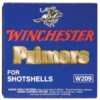
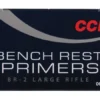
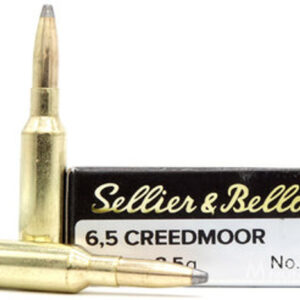
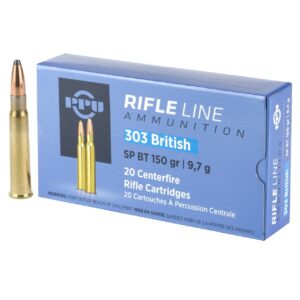
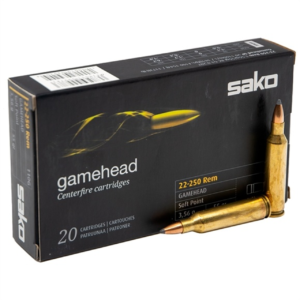
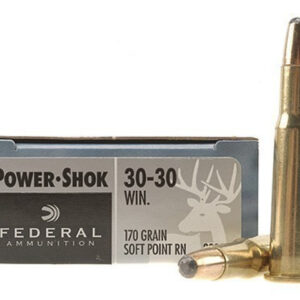
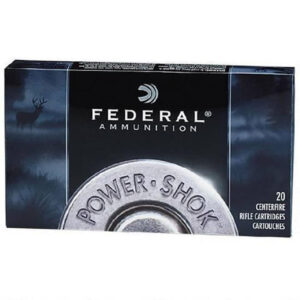
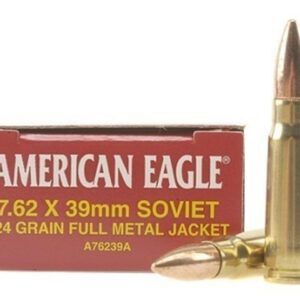
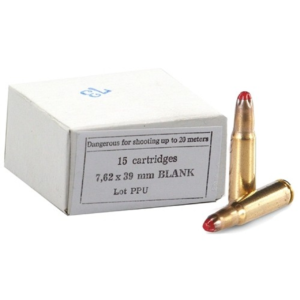
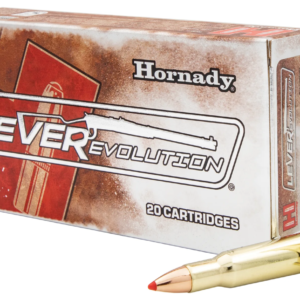
Reviews
There are no reviews yet.